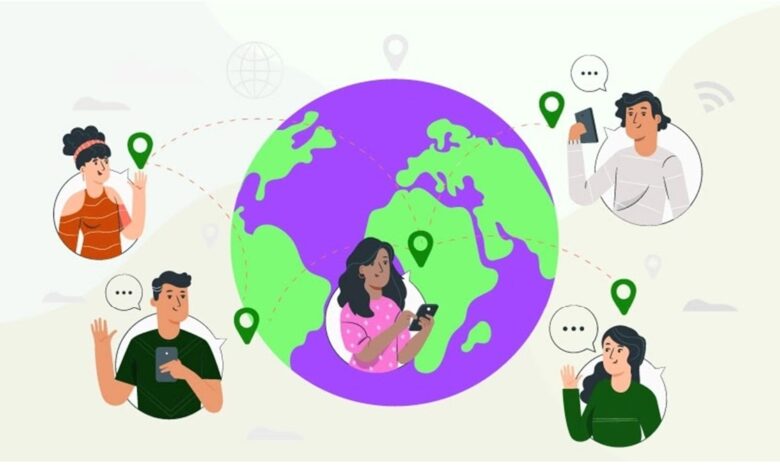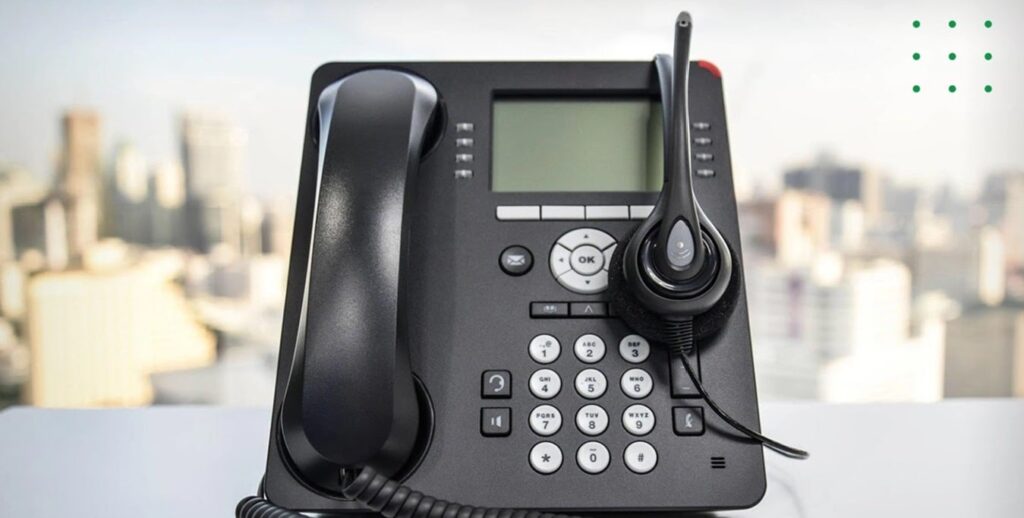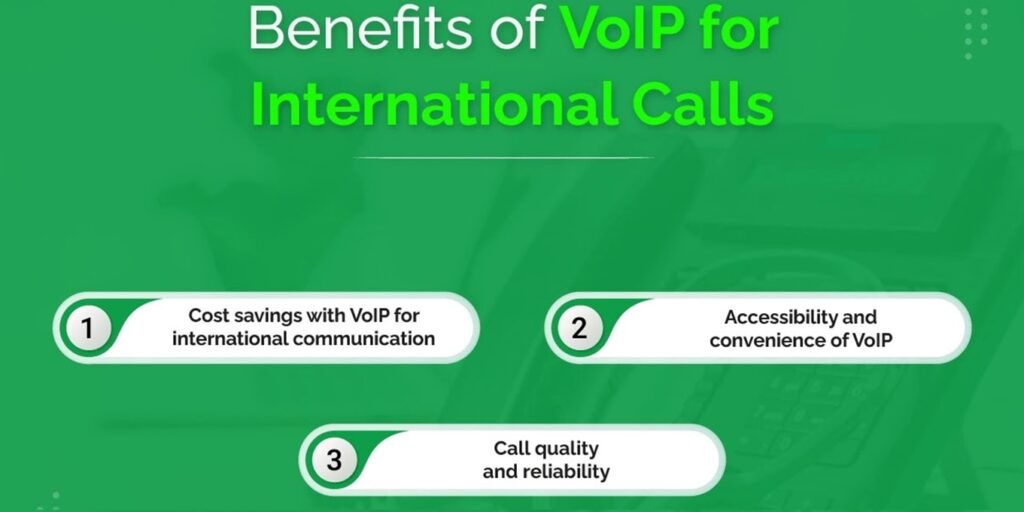VoIP for International Calls: Saving Money on Global Communication

Navigating the global landscape, it is more important than ever to stay in touch with people across the border. However, the traditional phone system and its calling mechanism can be inconvenient and expensive.
Therefore, whether you are a business owner or a simple individual, you constantly seek methods to lower your costs on global communication. For the exact same problem, VoIP can provide the perfect solution.
From the benefits of VoIP to its setup for international calls, this article provides you with the most effective way to save your money on global communication. So, tighten your belt and get ready to stash some cash.
Understanding VoIP

Voice over Internet Protocol, shortly known as VoIP, is technically a set of regulations that defines how voice signals are transferred over the Internet. Instead of using traditional telephone networks, VoIP uses the internet to transmit voice data in the form of digital packets.
VoIP enables not only voice communication but also multimedia sessions over the Internet. Along with this, it has become increasingly popular due to other multiple reasons like cost-effectiveness, flexibility, and the ability to integrate various communication services.
How does VoIP work?
For an overview of how VoIP technology works, simply imagine turning your spoken words into a series of postcards, sending them over the internet, and having the recipient put them back together to understand your message.
In much more detail, the analog signal is first converted into digital packets using ADC systems. After the digitalization, the big data chunks are broken down into small data packets. Each packet contains a portion of the voice data, along with information such as source and destination addresses.
Once the packets reach the destination using methods like routing and switching, they get reassembled using DAC systems. This is necessary for the recipient to hear the voice in its original analog form.
The Cost of International Calls

Usually, international calls are expensive and charged with per-minute rates with traditional telephony. They often charge additional costs with high introductory fees, this is due to the infrastructure like satellites and huge data centers and agreements with other foreign telecommunication companies.
Moreover, when you make international calls while using your mobile phones abroad, you may incur roaming charges. These roaming charges can add significant costs to international calls, as the mobile network provider may charge higher rates for calls made outside the user’s home country.
Overall, the cost of international calls is influenced by various factors, including the mode of communication (landline or mobile), the service provider, and the distance between the calling and receiving parties. However, to the rescue, advanced technologies like Voice over Internet Protocol (VoIP) come into the picture, providing cost-effective long-distance international calls.
Benefits of VoIP for International Calls

Most of the international businesses use VoIP as their top communication means for international calls. This is because it outranges every other form of communication in most of the factors, whether it be efficient pricing or scalability. Some of the benefits of using VoIP for international calls are discussed below.
● Cost savings with VoIP for international communication
As already mentioned, anyone who has used the conventional telephone system is pretty much aware of the astronomical prices billed for international calls. Due to the massive infrastructural setup cell companies have to make and the large amount of money they spend commissioning companies from other countries in order to use their infrastructure, the prices go up automatically for any call.
But, unlike the conventional calling system, VoIP calls are executed over the already set infrastructure of the internet, and for the endpoint, the bills of using this service are much lower. Additionally, using VoIP-based virtual numbers, the total cost can be lowered even more.
● Accessibility and convenience of VoIP
Again, when we talk about a particular cellular subscription network, they are curated keeping in mind a particular country or region. So, if the network provider is not among one of the few multinational cellular companies, you won’t even be able to use any type of service outside your country, let alone the execution of international calls.
In contrast, the fundamentals of VoIP being laid over the internet give it an unfair advantage over cellular companies. Without requiring any physical or electronic SIM card, as long as you have access to the internet, you are good to go. You can call anywhere in the world from any place, thus making VoIP service much more accessible and convenient to use.
● Call quality and reliability
A few generations of internet earlier, when the average bandwidths were low, you may have made a fair point of choosing a conventional network over VoIP in order to get good/stable call quality. But, at this point in time, 4k videos are streamed, and hundreds and thousands of Facetime calls are done every minute online. So, the reliability of VoIP service only depends on the quality of the ISP you choose for your connection.
With a high-speed / low-latency network connection, you can rely on your VoIP to have quality, uninterrupted national and international calls. But, bear in mind, before totally relying on VoIP service, choose a reliable ISP that is as quick and prompt as needed to provide support at times of fluctuations
Choosing the Right VoIP Service Provider

Seems like a lot of benefits, right? However, all these benefits are only enjoyable if your service provider facilitates a reliable and prompt service.
From pricing to the option of international calling, your whole VoIP system is fully dependent on the service provider you opt to choose. Therefore, here’s a quick guide for selecting the right VoIP provider:
- Configure your needs: Whether you are seeking VoIP for your personal use or business, firstly, you have to analyze your necessities. Ask yourself questions like, “What problem am I facing now, and what features can solve these problems”.
- Consider essential factors: Some of the must-consider factors while choosing providers are Pricing, Scalability, Security, Technical Support, Reliability, Integrations, and SLAs (Service Level Agreements).
- Research properly: After you configure your needs, research and compare the providers thoroughly, considering the above-mentioned factors. Avoid making hasty decisions.
- Seek for recommendations: Ask for recommendations from people who have already chosen the providers. Also, read the reviews and ratings to have a more accurate picture of the provider’s credibility and reliability.
Note: If your main aim is international calling, make sure to check the list of the available countries. Some providers may include certain countries in their standard plans, while others may charge additional fees for international calls.
Setting Up VoIP for International Calls
Once you are all done with choosing your best-fitting service provider, setting up for international calls is not a big deal.
Here’s a simple guide to setup your VoIP for international calls:
- Install necessary hardware: First, make sure you have all the essentials equipped. This includes high-speed internet, PC/Mobile, VoIP adapters, and headsets.
- SignUp for an account: Provide some credentials and sign up with the chosen VoIP provider.
- Purchase a plan: After signing up, you’ll need to add credit or choose a subscription plan based on the provider’s service.
- Get a VoIP number: Once your credit check is done, your provider gives you a VoIP number to make and receive calls.
- Enable international calling: Some providers may also require you to manually enable the international calling feature. If so, then you need to go to your VoIP account settings and enable international calling. This may involve adding a calling plan or paying an additional fee.
Making International Calls with VoIP

After you set up your essential hardware and software, making international calls with your VoIP system is just a piece of cake. The procedure is almost exactly like placing international calls with traditional telephones but with minor changes like accessing the VoIP application.
First, you need to open the VoIP software and locate the dialer or keypad using the app. While locating the dialer, make sure to use the proper calling format. This typically involves dialing the exit code for your country, followed by the country code, area code, and local number. For example, to call the United States from other countries, you have to dial 011 (this is the exit code of the US) + 1 (this is the country code of the US) + (area code) + (local number).
Additionally, if you want to receive international calls from your traditional phone, you will need to set up call forwarding. This will forward your calls from your VoIP number to your phone, making it much more accessible.
Tips for Saving Money on VoIP International Calls
This article was all about exploring the beneficiary factors of VoIP and how you can use them for international calls and save money. So, in the end, here are some additional bonus tips for you to save even more dollars on VoIP international calls.
- If you are a business owner and make a large number of international calls, you can use wholesale VoIP minutes.
- Consider purchasing a flat-rate or bundled plan that includes unlimited or discounted calls to the countries that you call more often.
- Try to schedule your international calls during off-peak hours, such as early morning and late night, as call rates are often lower during these periods.
- Monitor your VoIP usage to find out any areas you can save money.
Conclusion
In a nutshell, VoIP dodges the limitations of traditional networks, making it a global communication solution that’s both convenient and accessible. It’s a cost-effective alternative with perks like big savings, better scalability, and reliable calls.
Just by following a few simple steps, you can set up a VoIP system to make international calls, escaping the limitations and high expenses of traditional phone services. So why not embrace the power of voice-over-telephony and forget about the old-school telephony and their per-minute fees?
The message is simple: look into the perks, make wise decisions while choosing, and join the affordable revolution that VoIP brings to global communication. As the world goes digital, choosing VoIP for communication isn’t just smart; it’s a game-changer for maximizing resources and boosting efficiency.

